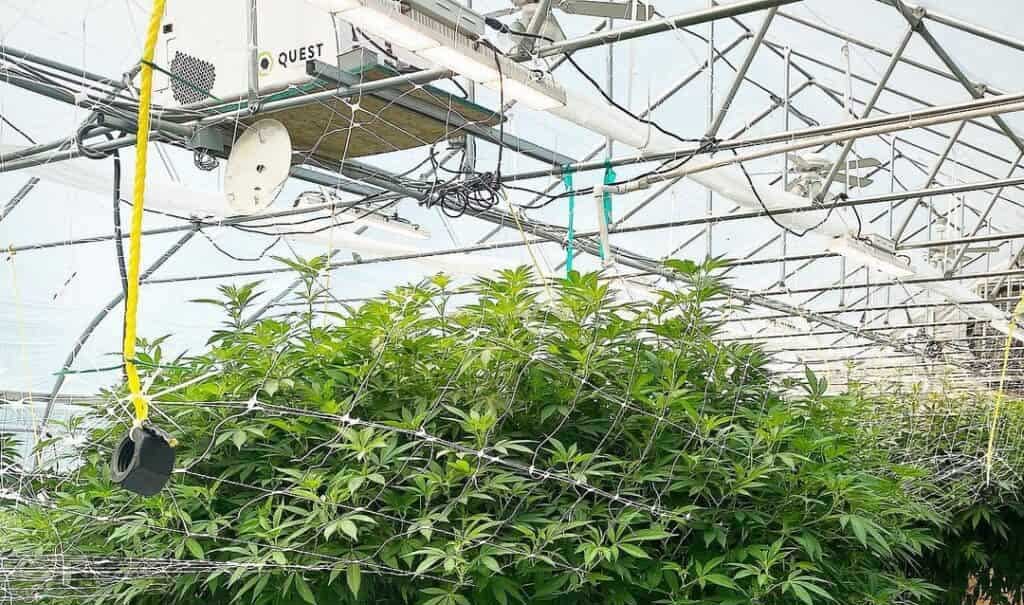If you have been shopping for LED grow lights, you have probably run across one (or more) of the many certifications out there. So, what do you really need to know about safety, rebates and what these certifications actually mean?
It’s a lot of information to take in at once, but for growers, there are a few simple things to understand.
No matter what you grow, you need to know if the LED grow lights you are investing in are safe, durable and perform like the manufacturer claims.
Let’s start with DLC Certifications:
 The Design Lights Consortium (DLC) is a voluntary certification program for LED lights manufacturers. What this means is, if your grow lights have DLC Certification, you can rest assured they have been tested by an independent and accredited third party in these areas: Micromole levels, efficacy, longevity, spectrum accuracy, voltages and operating temperature.
The Design Lights Consortium (DLC) is a voluntary certification program for LED lights manufacturers. What this means is, if your grow lights have DLC Certification, you can rest assured they have been tested by an independent and accredited third party in these areas: Micromole levels, efficacy, longevity, spectrum accuracy, voltages and operating temperature.
So, why DLC Certification important? Many utility companies nationwide look for this certification to decide whether to grant rebates to companies who use certified products – like LED grow lights.
These certifications also give growers peace of mind that the claims the manufacturer is making about their LED grow lights are true – and have been verified.
If you are buying LED grow lights, seeing these metrics verified and duplicated in a lab is reassuring, because it means you are getting what you paid for – and the light is as advertised.
Utility companies have decided to hand out incentives, because they are invested in trying to encourage lower energy consumption – especially in large, indoor growing facilities. Rather than build new power plants, they are incentivizing growers to invest in more energy efficient grow lights by handing out rebates. Most, if not all, of these incentives require lighting that has been DLC certified which is why we recommend that growers start there when beginning their search for LED grow lights.
ETL and UL certifications:

 Safety is important when you are planning – or updating – your grow facility, and there are two organizations that certify the safety of grow lights in the United States: The ETL and the UL.
Safety is important when you are planning – or updating – your grow facility, and there are two organizations that certify the safety of grow lights in the United States: The ETL and the UL.
Electrical Testing Labs (or ETL) and Underwriters Laboratories (or UL) do basically the same type of certification. They are nationally recognized testing laboratories and, in a nutshell, make sure that the grow lights they certify are safe to use in a horticultural environment.
So, for commercial growers, ETL or UL certification is important if you want to stay compliant with OSHA!
That’s because the certifications of these organizations reassure growers that the products they purchase meet a certain standard of safety.
After all, grow lights can take a lot of abuse: They operate in a humid, wet and often harsh environment. They need to be able to handle it.
And anytime electricity is involved – especially if it is mixed with a wet or moist environment – safety really comes into play. Growers need to be confident that the LED grow lights they purchase will operate as they should in the environment for which they are intended.
If you ever look at a lamp, you might see that it is UL 1598 certified. That means it can safely operate indoors in daily use. But horticultural lights are different and they have their own certification, as they are exposed to more things (chemicals, water, high humidity and getting moved or bumped around) than your average table lamp. So, grow lights are certified under UL8800.
If you see that your grow lights are UL 8800 certified, you are good to go.
The Key Takeaway
For growers looking to invest in LED grow lights, knowing about the different certifications is important, so you know you are:
- Getting the grow light you paid for and that an independent lab has proven the manufacturer’s claims
- You can be eligible for rebates from utility companies for using energy efficient technology
- You are using a light that has been rated for safety in a horticultural environment – which is crucial to OHSA compliance
Growers should always check the certifications on their indoor grow lights so they know they are buying technology that’s been tested and approved.


